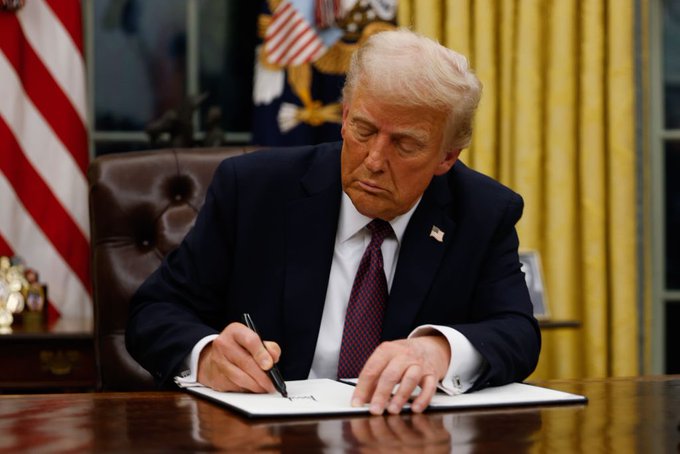Tensions between Washington and Beijing have intensified after US President Donald Trump declared that his administration would introduce an additional 100% tariff on all Chinese imports starting next month.
He also announced upcoming export restrictions on key American software, saying the move aims to protect national interests amid what he described as “hostile” actions by China.
The announcement came days after Beijing imposed new rules tightening exports of rare earth minerals, a crucial resource in the production of vehicles, smartphones, and defence technology. In response, Trump accused China of “becoming very hostile” and attempting to hold the world “captive.”
He further suggested that his expected meeting with Chinese President Xi Jinping could be in doubt. “I’m going to be there regardless,” he said at the White House, before admitting he was unsure “that we’re going to have it.”
Financial markets immediately reacted to the escalating rhetoric, with the S&P 500 falling 2.7%, its sharpest decline since April.
Rare earth minerals are vital to many US industries, and China controls the majority of their global production. The last time Beijing restricted their export earlier this year, several American firms were hit hard, with Ford temporarily halting car production due to shortages.
Beijing has also opened an antitrust probe into US chipmaker Qualcomm, a move analysts believe could stall the company’s pending acquisition of another semiconductor firm. In addition, China announced new port charges targeting ships connected to the US.
“Some very strange things are happening in China!” Trump posted on social media. “They are becoming very hostile.”
The two countries had entered a fragile trade truce in May, after months of disputes that nearly froze the flow of goods. Even after the agreement, Chinese exports to the US still face an additional 30% levy compared to early this year, while American goods entering China are subject to a 10% tariff.
Talks have since continued between the two sides, covering areas such as TikTok, agricultural trade, and the exchange of advanced technologies like semiconductors. Another round of discussions was expected later this month in South Korea.
Jonathan Czin, a fellow at the Brookings Institution, said Xi’s recent actions were likely designed to influence those upcoming talks. “He’s looking for ways to seize the initiative,” he said, explaining that the timing of the rare earth restrictions showed careful strategy on China’s part.
He added that China does not appear overly concerned about potential US retaliation. “From their perspective, the Trump administration blinked,” he said, referring to previous trade rounds.
Trade experts say Beijing’s latest policy goes beyond economic posturing. The new restrictions are aimed at foreign defence industries that depend on Chinese minerals, raising strategic stakes for Washington.
“Nothing makes America move like targeting our defence industry,” said Gracelin Baskaran, who heads the critical minerals security program at the Center for Strategic and International Studies.
“The US is going to have to negotiate because we have limited options, and in an era of rising geopolitical tension and potential conflict, we need to build our industrial defence base.”
Although the planned Trump–Xi meeting now appears uncertain, Baskaran believes talks may still occur. “Negotiations are likely imminent,” she said. “Who does them and where they happen will be determined with time.”
